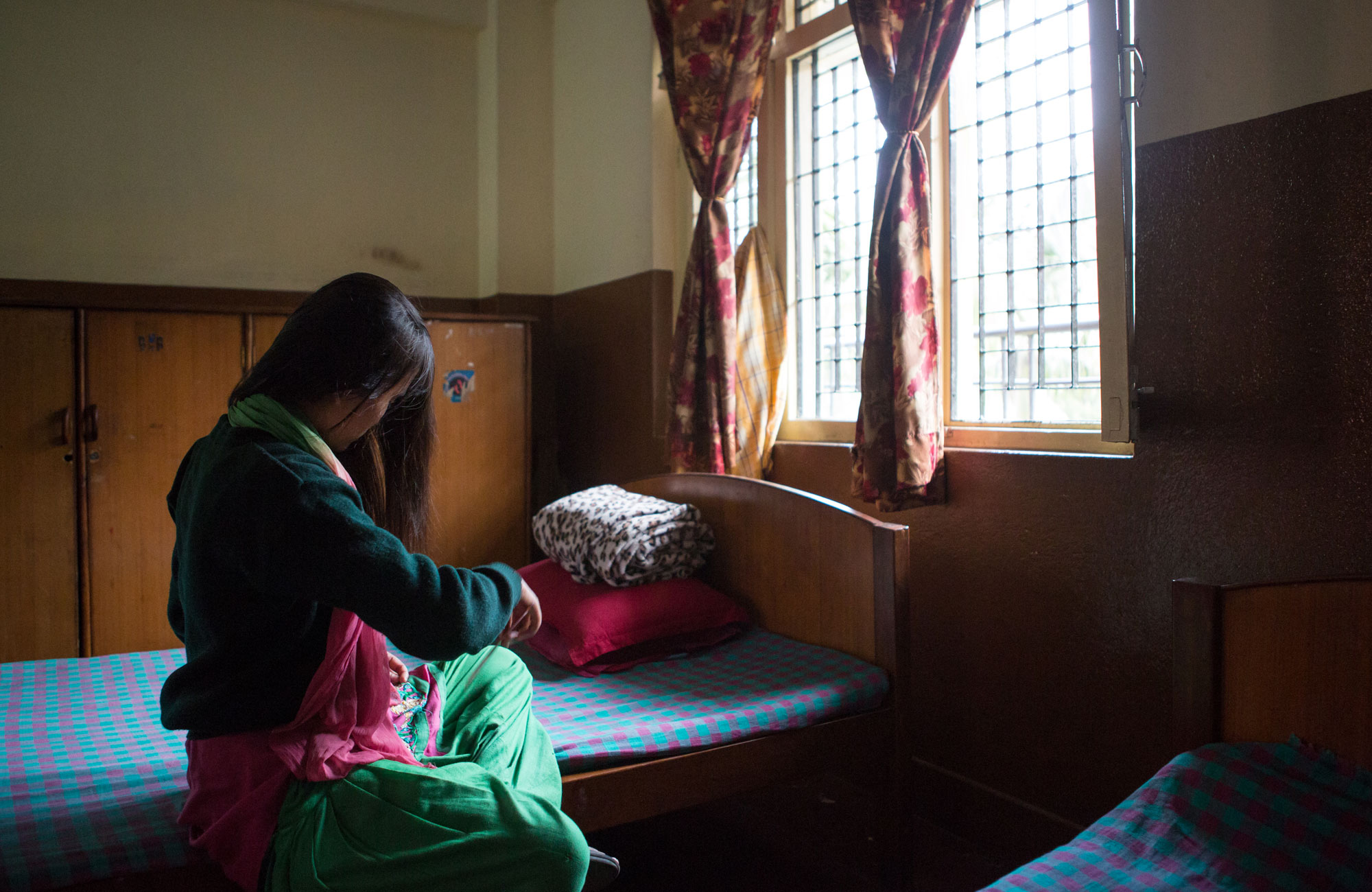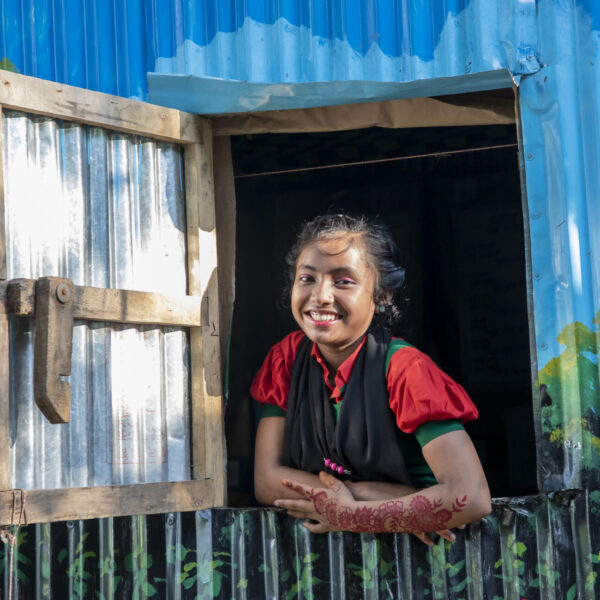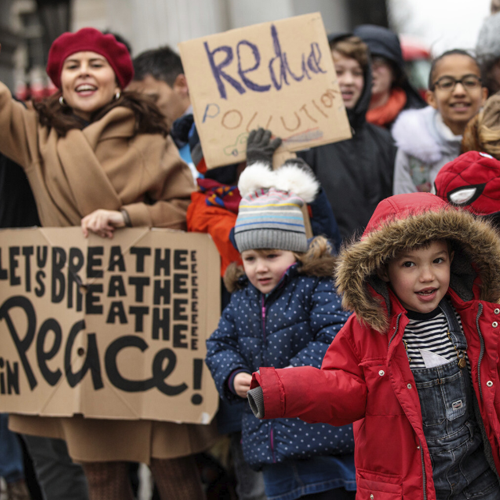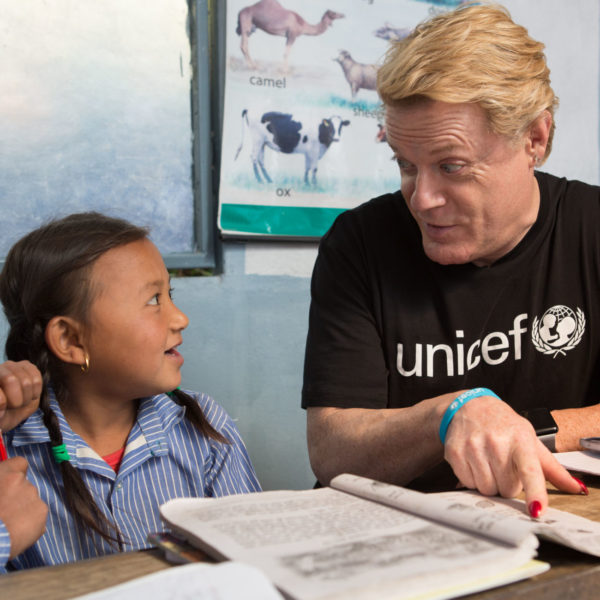Meet Maya
Maya was just 15 when two massive earthquakes hit Nepal, killing nearly 9,000 people and injuring tens of thousands of others.
With her home flattened and her father in hospital following the quakes, she was suddenly left to take care of her three younger siblings in a remote mountain village. Maya and her siblings found themselves living in a basic shelter. “It had no proper door,” she recalls. “We never had enough to eat.”
Then a woman she’d met in the village offered her and her best friend a way out of hardship. Maya decided to trust her, but ended up being taken on a long bus journey towards India.
A life-changing intervention
That was back in 2015. Thankfully, police and staff from Maiti Nepal, a UNICEF-supported NGO that works to prevent trafficking, intercepted Maya and her friend at the border and took them to Maiti Nepal’s transit centre, where they were offered counselling and proper care. Now, a year and a half on, Maya’s life has changed beyond all expectation.
Although she’d never previously had the chance to go to school in her village, the support she gets at Maiti Nepal (which translates as ‘mother’s home Nepal’) includes education, so she’s learning to read and write.
She now also helps with gardening around the Maiti Nepal centre. “Sowing, weeding and watering these tender flowers is nothing compared to the work I am used to doing in the village,” she says. “This comes naturally to me.”
Maya continues to live at the centre in Kathmandu, along with her sister, who came to the centre shortly after Maya arrived. The two sisters still see their parents and other siblings, but have decided to remain at Maiti Nepal as here, they have a chance to go to school.
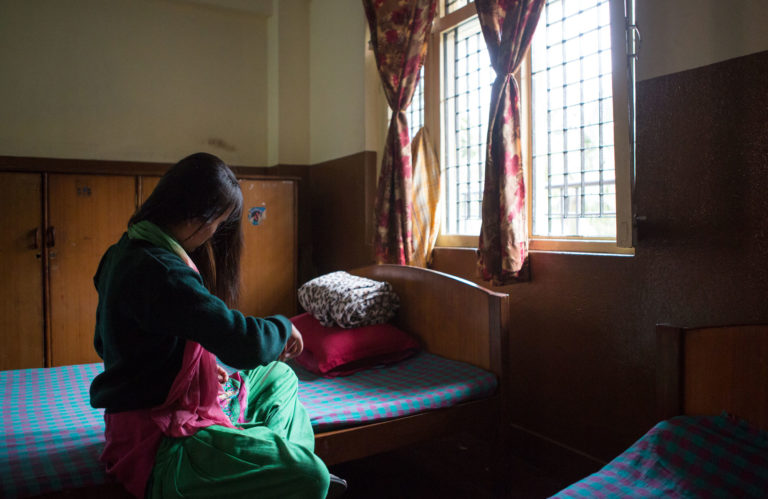
Maya's now been at the UNICEF-supported Maiti Nepal centre for a year and a half.
Photo: UNICEF/2017/Matas
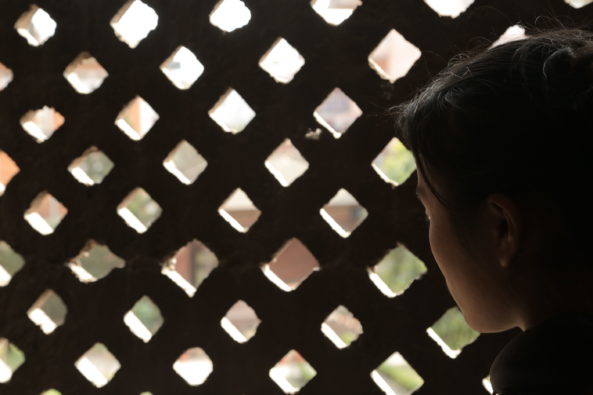
Back when I was living at home, I didn’t use to look forward to my future.
But now I’m here, in Maiti Nepal, I am very hopeful about it.
Maya, 16
Rebuilding lives after the earthquakes
Maiti Nepal was set up with UNICEF’s support in 1994. With increased support following the 2015 earthquakes, they’ve been able to strengthen their capacity, and now have 18 centres at critical points across Nepal and the surrounding country borders to make sure that they can spot and prevent trafficking activity.
This means they’re even better able to identify and report suspicious activity and strengthen the skills of local police and government as well.
Following the earthquakes, almost 1,000 women and children like Maya were intercepted from the border areas.
Maiti Nepal has also increased its awareness activities in quake-affected villages. Staff now provide support at all points in the process, from educating families and young people about trafficking, to providing legal services and psychosocial counselling. They then help rehabilitate and reintegrate young people who’ve been trafficked, providing livelihood training and support.
1,000
After the earthquakes, almost 1,000 women and children were intercepted at Nepal's borders
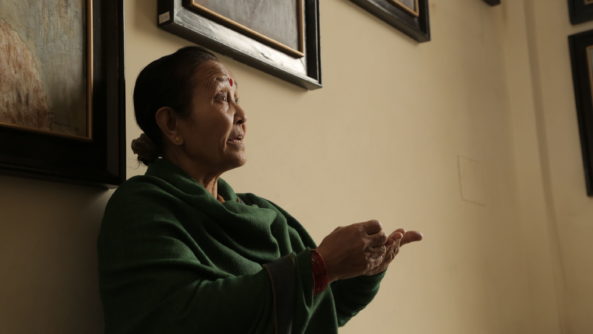
You might ask me why I take all those children in, but what happens to them if I leave them on the street? They'll be trafficked, sexually exploited.
If I care for them they'll become best basketball players, cooks. They'll become someone.
Anuradha Koirala, founder of Maiti Nepal
Help keep children safe when an emergency hits
Nepal is on the road to recovery following the earthquakes, and UNICEF continues to support the country’s children, working with organisations like Maiti Nepal to help children recover and rebuild their lives.
When a disaster like the Nepal earthquake strikes, UNICEF staff are ready to respond rapidly to deliver life-saving food, medicine and water, education and protection services so that children get the help they need.
We rely on money from our Children’s Emergency Fund to do this. And we rely on donations from the British public to keep the fund alive and enable us to respond to emergencies, whenever they come, and whatever their size.
See how your support helped hundreds of thousands of families in Nepal start to rebuild their lives after the 2015 earthquakes.


